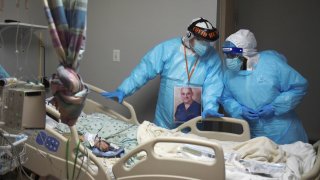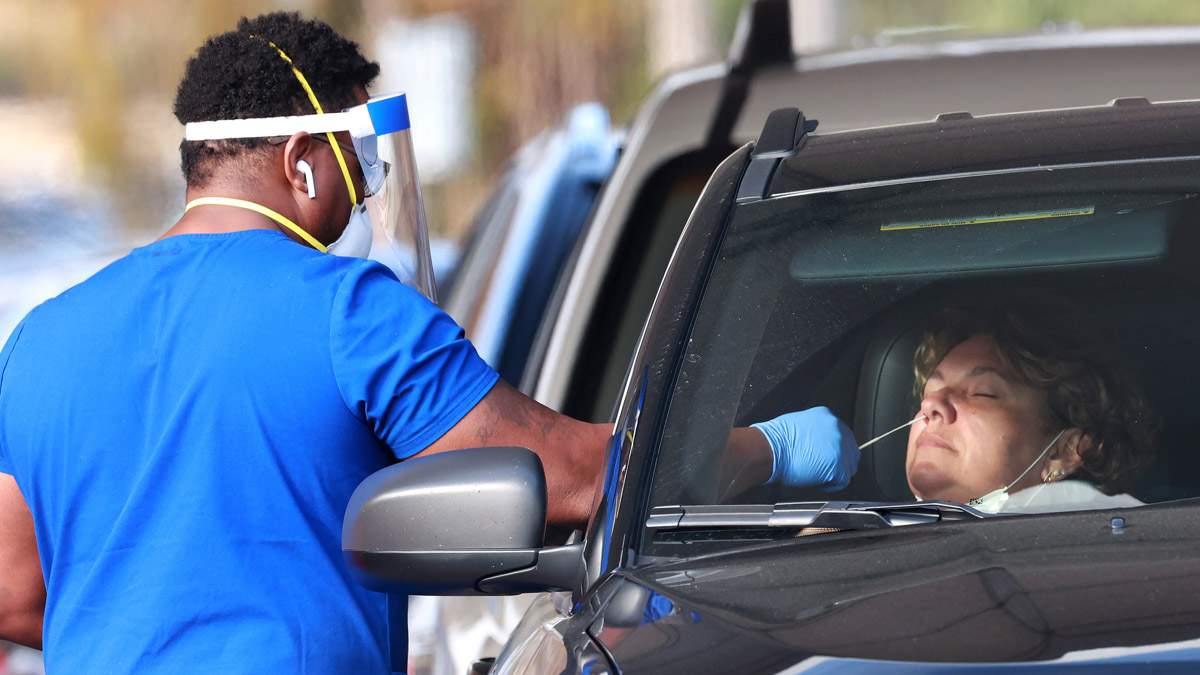
With 52 more COVID-19 fatalities added to the statewide total Thursday, Texas has now counted more than 50,000 deaths related to the ongoing pandemic.
According to the Texas Department of State Health Services data, the number of people who have died in the Lone Star State after contracting COVID-19 is now 50,051.
State data shows there were 52 deaths announced Thursday, which is right on par with the 7-day average for the number of daily deaths. That number had been decreasing into the 30s earlier this month before beginning a steady climb back into the 50s.
Get top local stories in DFW delivered to you every morning. >Sign up for NBC DFW's News Headlines newsletter.
Data obtained from the DHS over the last 14 months shows Texas' deadliest day during the pandemic was Jan. 27 when the state reported 471 deaths. That day was part of the deadliest week when 2,310 people were reported to have died between Jan. 18-24.
With the number of cases and deaths far lower than they were at the peak of the pandemic, the state is now reporting roughly the same number of deaths in a week that they were reporting every day in January.
Local Fatalities Due to COVID-19
(through Wednesday, May 19)
- Dallas County -- 4,005
- Tarrant County -- 3,472
- Collin County -- 832
- Denton County -- 566
- Johnson County -- 366
- Ellis County -- 313
- Kaufman County -- 259
- Parker County -- 184
- Rockwall County -- 154
COVID-19 Latest
COVID-19 Vaccines
In Texas, the COVID-19 vaccines are currently available to anyone over the age of 5. The vaccines are still not approved for children younger than 5 however -- those trials are ongoing.
Once vaccinated, people who received either the Moderna or Pfizer vaccines are expected to get some level of protection within a couple of weeks after the first shot, but full protection may not happen until a couple of weeks after the second shot. For those who receive the Johnson & Johnson vaccine -- there is only one shot needed.
As of Jan. 3, 2022, it is also recommended those who are age 12 and up and who have been fully vaccinated receive a booster as early as five months after their last dose, for a total of three shots. The vaccine made by Pfizer and its partner BioNTech is the only U.S. option for children of any age.
As for even younger children, kid-size doses for 5- to 11-year-olds rolled out in November and experts said healthy youngsters should be protected after their second dose for a while. But the FDA also said on Jan. 3, 2022, that if children that young have severely weakened immune systems, they will be allowed a third dose 28 days after their second. That’s the same third-dose timing already recommended for immune-compromised teens and adults.
Pfizer and Moderna are studying their vaccines, in even smaller doses, for children younger than 5.
Even when fully vaccinated, it's still possible to become infected by the virus since none of the vaccines offer 100% protection from infection. With that in mind, even if you've been vaccinated it's still a good idea to wear a mask and keep some separation between strangers or those whose vaccination status is unclear.


